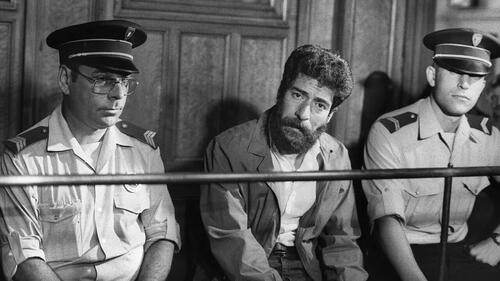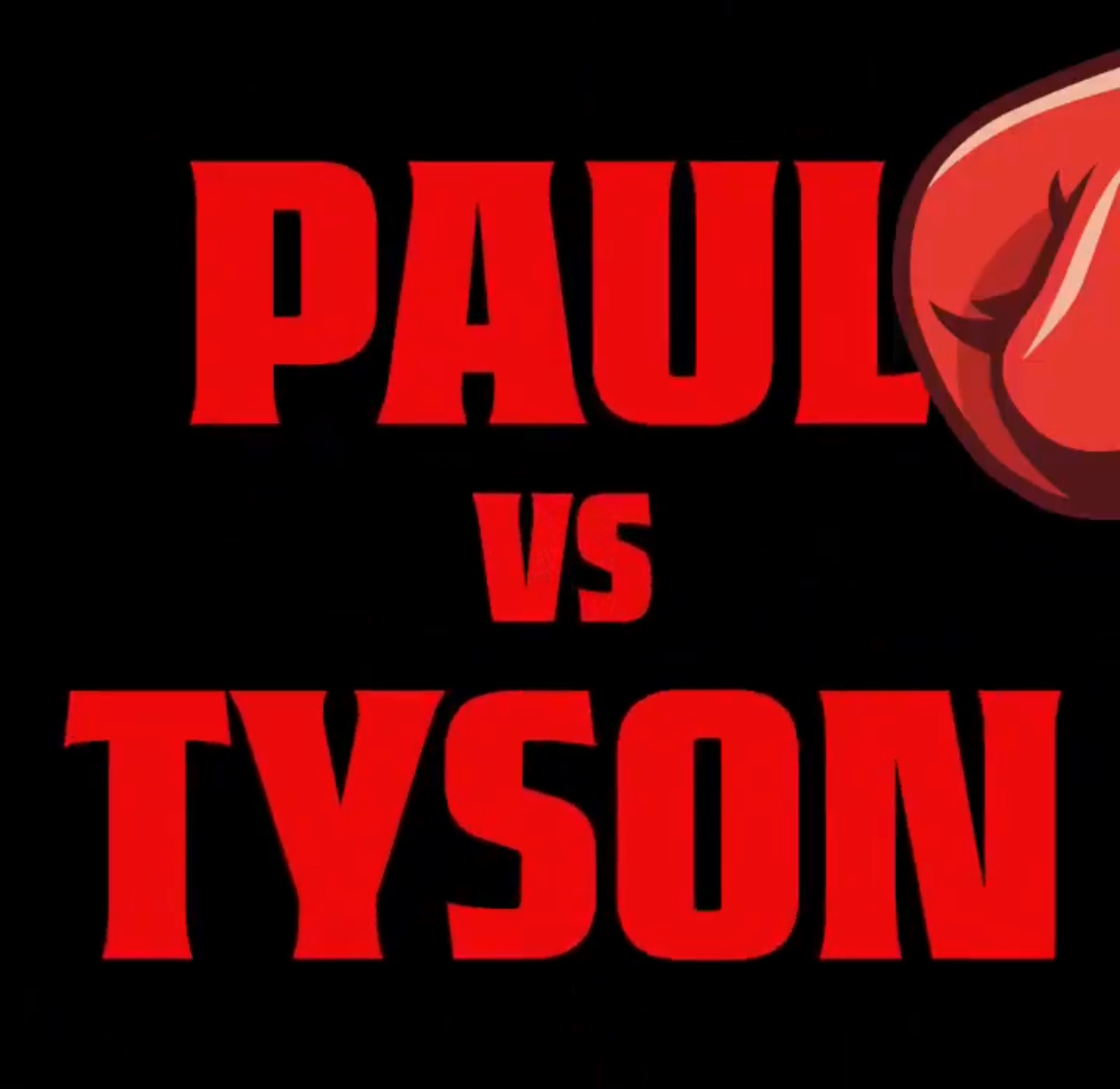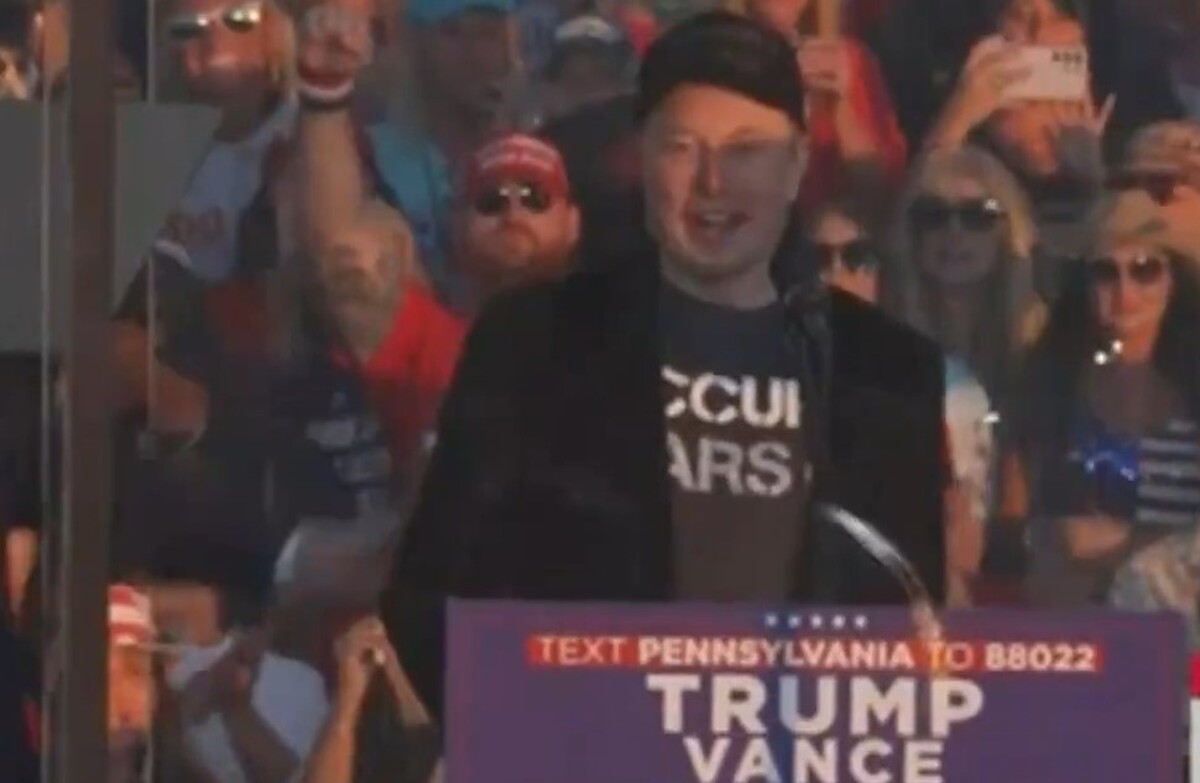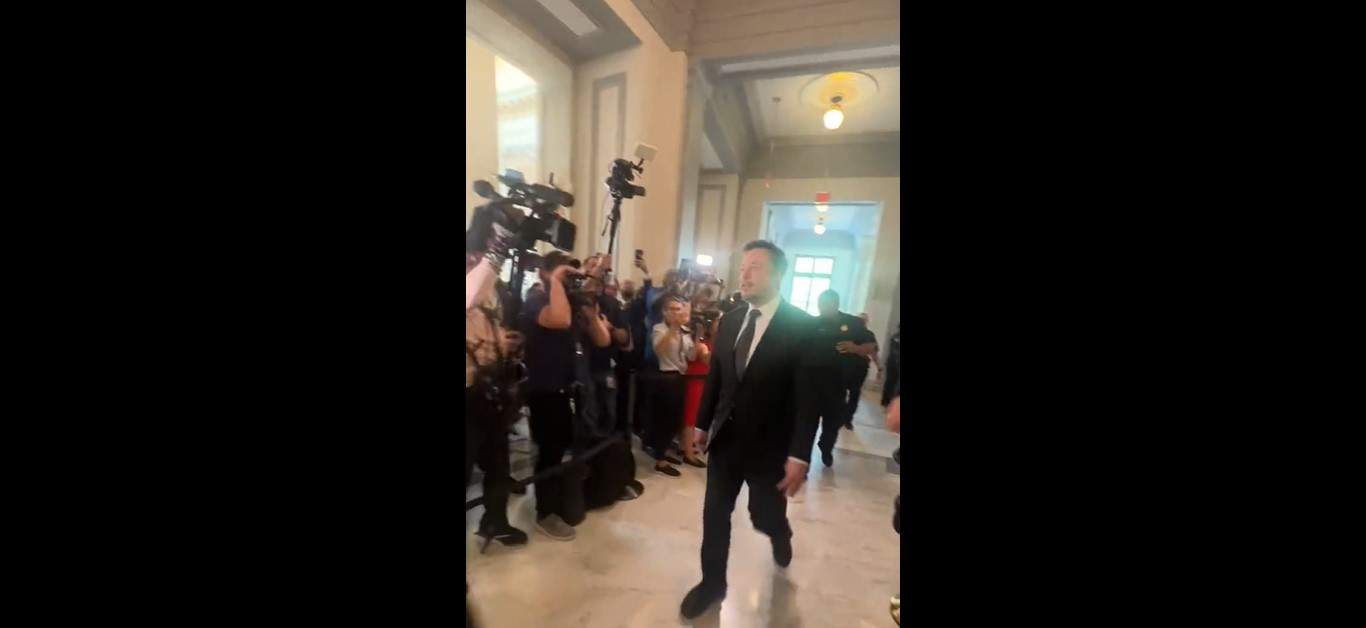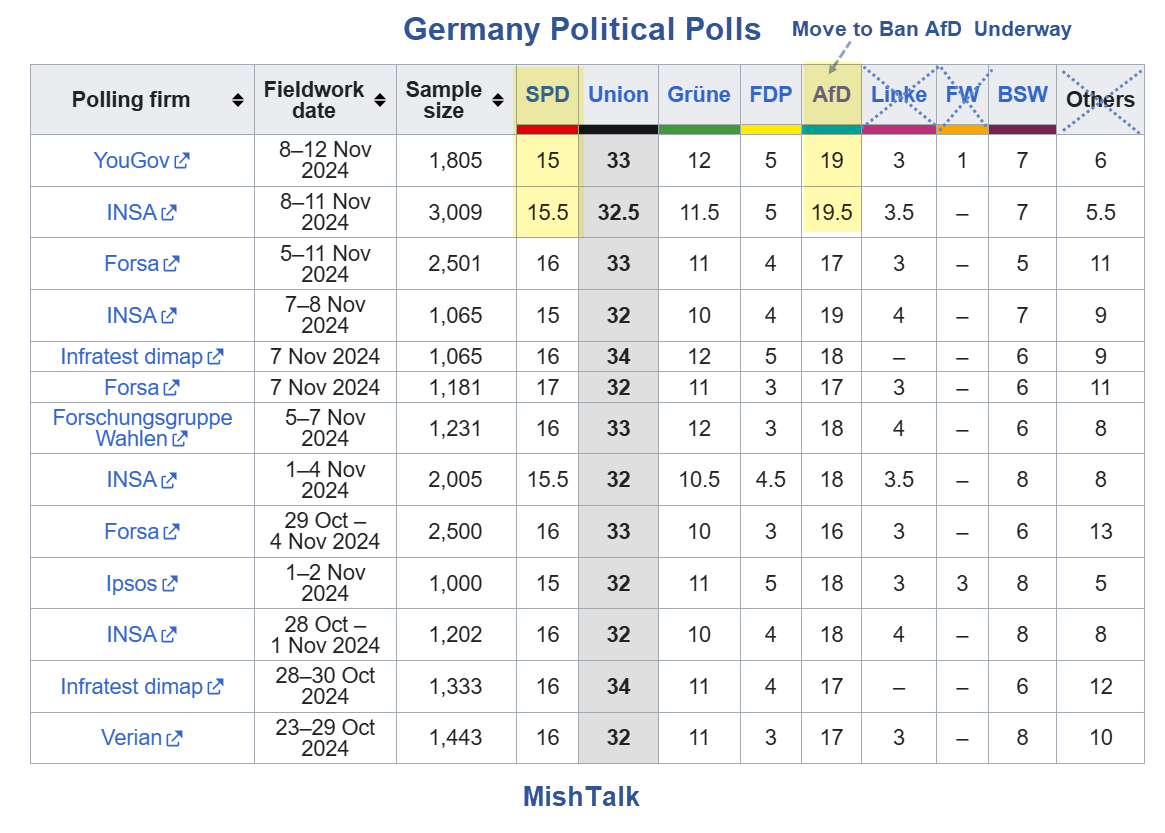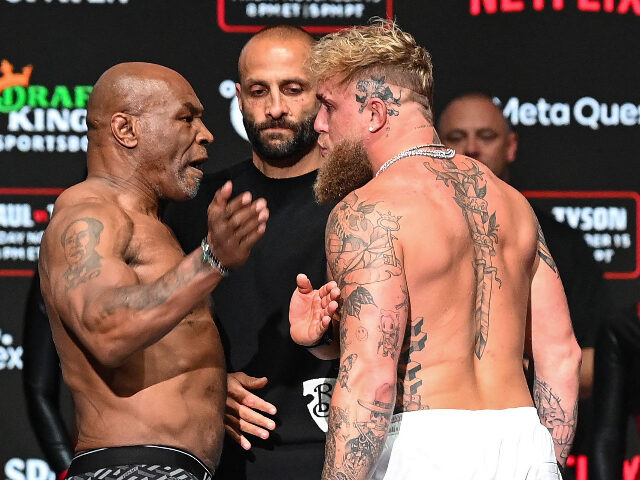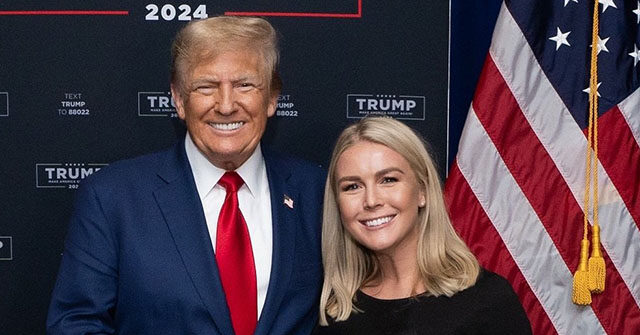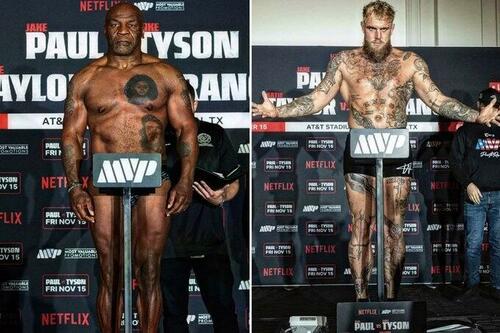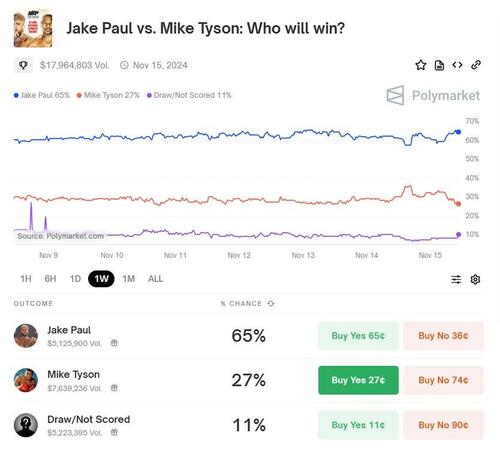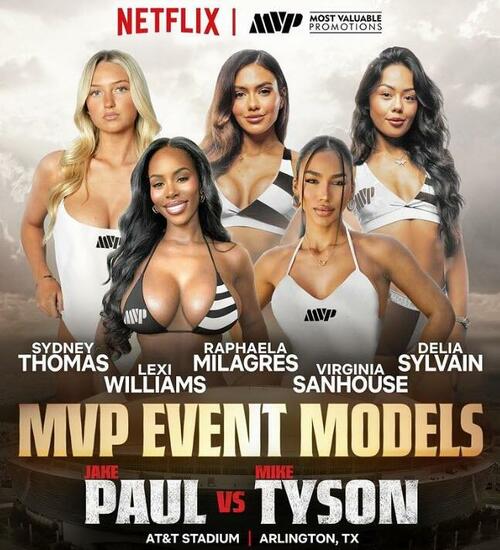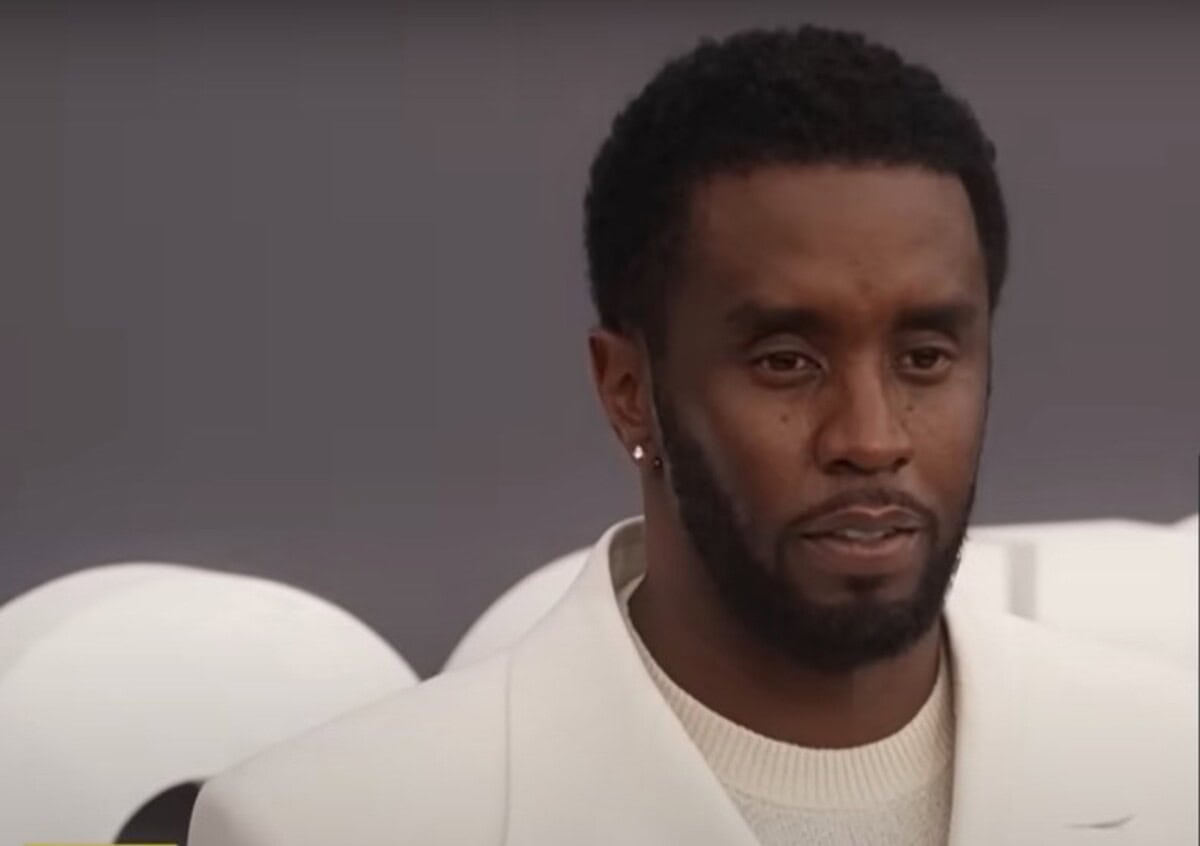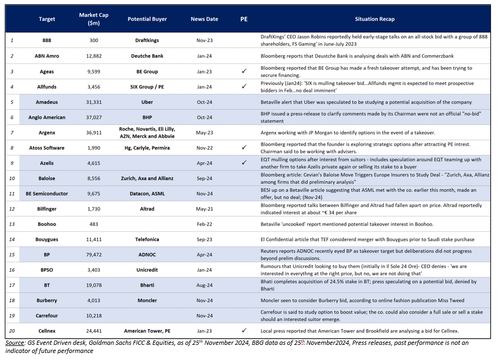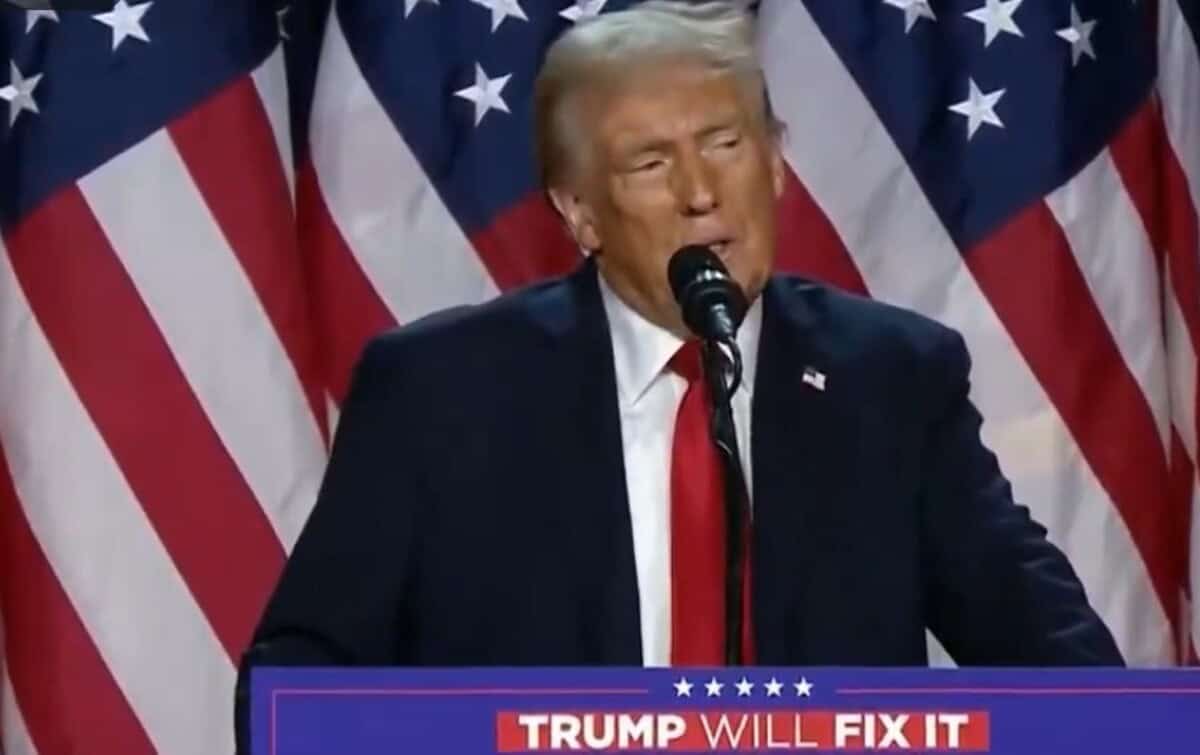French Court Orders Release Of Lebanese Man Convicted Of Killing US & Israeli Diplomats In 1980s
French Court Orders Release Of Lebanese Man Convicted Of Killing US & Israeli Diplomats In 1980s
A French court on Friday ordered the release of Lebanese pro-Palestine activist Georges Ibrahim Abdallah, Europe’s longest-held political prisoner, after 40 years in prison.
Abdallah, a former guerrilla with the Popular Front for the Liberation of Palestine (PFLP), was sentenced to life in prison in 1987 for his alleged involvement in the 1982 murders of US military attache Charles Robert Ray and Israeli diplomat Yacov Barsimantov.
The 73-year-old has appealed his conviction 11 times since becoming eligible for release in 1999. The court said the communist activist would be released on December 6 on the condition that he leaves France and does not return, French anti-terror prosecutors said in a statement to AFP.
The prosecutors said they would appeal the court’s decision, leaving the timing of Abdallah’s release uncertain.
The Lebanese activist, born to a Christian family in the northern village of Koubayat, has long maintained that he was not a “criminal” but “a fighter” who battled for the rights of Palestinians.
“The path I followed was dictated by the human rights violations perpetrated against Palestine,” he told the judges during his latest appeal for release.
Wounded in 1978 during Israel’s invasion of Lebanon, Abdallah, a secondary school teacher, joined the Marxist-Leninist PFLP, which carried out a series of plane hijackings during the 1960s and 1970s.
A year later, Abdallah, along with his brothers and cousins, founded his own pro-Palestine armed group, the Lebanese Armed Revolutionary Factions (LARF). The group had contact with other far-left armed outfits, including France’s Action Directe, Italy’s Red Brigades and the German Red Army Faction (RAF).
The Lebanese anti-Israeli Marxist group claimed responsibility for five attacks, including four in France in 1981 and 1982.
‘Honor of being accused’
In 1986, Abdallah was sentenced in Lyon to four years in prison for criminal association and possession of weapons and explosives. He was tried the following year for complicity in the assassination of Ray and Barsimantov, as well as for the attempted assassination of a third American diplomat in 1984.
In the murder trial, one of the French secret services’ sources was Abdallah’s lawyer, Jean-Paul Mazurier, who later revealed that he was an intelligence agent.
In court, Abdallah denied the accusation but declared: “If the people did not entrust me with the honor of participating in these anti-imperialist actions that you attribute to me, at least I have the honor of being accused of them.”
Abdallah was then sentenced to life in prison, a far more severe punishment than the 10-year sentence sought by the attorney general. His lawyer, Jacques Verges, who previously defended clients such as Venezuelan militant Carlos the Jackal, saw the verdict as “a declaration of war”.
A support committee was immediately formed, demanding Abdallah’s “immediate release”. The longest-serving prisoner in France has never expressed regret for his actions.
“He is doing well intellectually. He is an activist. He sticks to his guns, reads a lot and keeps himself very informed about what is happening in the Middle East. People write to him from all over the world,” his lawyer, Jean-Louis Chalanset, told AFP in 2022.
‘A political victory’
“I am the victim of a political decision,” Abdallah said shortly before the verdict on Friday.
Washington has consistently opposed Abdallah’s release, while Lebanese authorities have repeatedly called for his freedom.

Since 1999, the year he became eligible for release, all his parole requests have been rejected except one in 2013, when he was granted release on the condition that he be expelled from France.
When his request was granted that year, then-US Secretary of State Hillary Clinton contacted French Foreign Minister Laurent Fabius, saying in diplomatic cables revealed by WikiLeaks: “Although the French government has no legal authority to overturn the Court of Appeal’s decision, we hope French officials might find another basis to challenge the decision’s legality.”
French Interior Minister Manuel Valls then refused to proceed with the order and Abdallah remained in jail.
Chalanset told AFP that the court’s decision on Friday is not contingent on the government issuing such an order, calling it “a legal and a political victory”. However, under French law, an appeal can suspend the court’s decision, effectively deferring its execution.
Over the years, Abdallah’s fate has mobilized activists close to the French Communist Party and the far left, who have accused successive governments of employing relentless tactics regarding the political prisoner’s release.
Several communist municipalities have even made him an honorary citizen, and protests have frequently been held outside his prison in Lannemezan, in southwestern France. “Georges Ibrahim Abdallah is the victim of a state justice that shames France,” Nobel Prize-winning author Annie Ernaux said in a piece in the communist daily L’Humanite last month.
The Human Rights League, a leading French human rights NGO, has long maintained that Abdallah’s continued imprisonment violates human rights.
Tyler Durden
Sat, 11/16/2024 – 07:35
Mike Tyson beaten by Youtuber Jake Paul in heavyweight return
Mike Tyson’s controversial return to boxing ended in a one-sided defeat on Friday, with Youtuber-turned-prizefighter Jake Paul cruising to victory by unanimous decision against the heavyweight icon in Texas. Tyson, 58, barely landed a punch during the eight-round bout at the AT&T Stadium in Arlington, with Paul winning by big margins on all three cards […]
The post Mike Tyson beaten by Youtuber Jake Paul in heavyweight return appeared first on Insider Paper.
Iran ‘categorically’ denies envoy’s meeting with Elon Musk: state media
Iran’s foreign ministry spokesman Esmaeil Baghaei Saturday “categorically” denied The New York Times report on Tehran’s United Nations envoy meeting with US tech billionaire Elon Musk, state media reported. In an interview with state news agency IRNA, Baghaei was reported as “categorically denying such a meeting” and expressing “surprise at the coverage of the American […]
The post Iran ‘categorically’ denies envoy’s meeting with Elon Musk: state media appeared first on Insider Paper.
Iranian press divided over envoy’s reported meeting with Elon Musk
Iranian media on Saturday was divided over a reported meeting between Tehran’s ambassador to the United Nations and tech billionaire Elon Musk — unconfirmed by Iranian authorities — with some describing as “positive” while others called it “treason”. The New York Times reported on Friday that Musk, who is a close ally of President-elect Donald […]
The post Iranian press divided over envoy’s reported meeting with Elon Musk appeared first on Insider Paper.
Germany’s Political Fools Hope to Ban AfD, Learn Nothing From Trump’s Huge Victory
by Mish Shedlock, Mish Talk: Let’s discuss lawfare in Germany and the move to ban Germany’s second most popular party. In Germany, as happened with Trump in the US, political opponents of AfD want to exclude the party from the next federal elections. TRUTH LIVES on at https://sgtreport.tv/ A Move to Ban AfD Please note German Lawmakers […]
America Calls For Sanity And Prosperity
America Calls For Sanity And Prosperity
Authored by Thaddeus G. McCotter via American Greatness,
Donald Trump’s re-election as President of the United States, including an immense electoral college and popular vote victories, was the American people’s call for sanity and prosperity. For the incoming Trump administration, there is no time to waste in honoring the public’s mandate for change from the Obama and Biden administrations’ radical, dangerous, extreme, and disastrous policies.
The first step is to lower the country’s political temperature. It won’t be easy.
On the prevailing side, Mr. Trump’s supporters were elated by his victory and felt a palpable sense of relief at the reprieve it provided from the left’s ideological assault upon everything these God-fearing, patriotic Americans cherish. Yet, even as the election night celebrations continued, the calls began in earnest for the incoming administration to implement the most sweeping policies anyone to the right-of-center could conceive; and, yes, for “accountability” of bad actors, be it through political firings and impeachments, social ostracisms and “cancellations,” and criminal investigations that were expected to lead to indictments and prison sentences.
This is not unique in the annals of victorious presidential campaigns. Indeed, though one would be loath to acknowledge the irony, such demands were made by Democrats when Mr. Biden captured the White House in 2020. While Mr. Biden and his handlers and Congressional abettors indulged their leftist base with radical legislation, executive orders, and partisan political persecutions, it would behoove Mr. Trump and his supporters to recognize precisely how the American people viewed such unexpected surprises from “Lunch Bucket Joe from Scranton.” And, should they forget, all they need do is look at Vice President Kamala Harris’s electoral map.
This is not as easy as it sounds, for looking across the political aisle is an embittered and embarrassed Democrat Party. Lashing out at everyone but themselves for the abject failure of their fetid ideologies in matters of peace and prosperity, the left is not in a kumbaya mood—any more than are Mr. Trump’s supporters, who bear the scars of the Democrats’ systematic sedition against the first Trump administration; their despicable lawfare against him personally; and their pervasive slanders, smears, and attacks against his voters.
Already, under the guise of “offering olive branches,” the Democrats have sought to buy time to regroup, craft a narrative that they are the peacemakers, and wait for the first opportunity to rebrand Mr. Trump as an unstable, wannabe dictator who must be “resisted” by any means because it is justified by his being an existential threat to “our democracy.” It is a repeat of 2016, except in this instance, the size of Mr. Trump’s win has stunned and staggered the left, which necessitates their crafting breathing room to coordinate their counterattack.
Those blind to the Democrats’ stratagem will foolishly implore Mr. Trump to water down his rhetoric and goals to court the Democrats’ goodwill.
The GOP and, yes, Mr. Trump have gone down this dead end before and have learned a hard, valuable lesson not to repeat this mistake.
But this is not about enfeebling, but rather enabling the Republican-Populist agenda and movement.
Instead, as is his wont, Mr. Trump must grab the bulls**tters by the horns and offer the terms of political comity that will lower the country’s political temperature for the Democrats’ consideration.
The first and defining measure?
Announce that upon assuming office you will pardon Hunter, Jim, and Joe Biden for any crime they committed or may have committed.
Saying it and doing it will cement in the public’s mind that Mr. Trump is not only refraining from doing unto his political enemies what was done unto him but showing the magnanimity in victory of which his Democrat opponents have proven incapable. Armed with the moral high ground and the political insulation this beneficent act would provide, Mr. Trump will have significantly increased his already immense political capital that will be required to pursue and implement the significant policy reforms that he articulated throughout the campaign.
Of course, there will be pushback within his base by those who don’t accept that.
If Republicans do unto the Democrats what the latter did unto them, the public will view the GOP as hypocrites, declare a pox on both houses, and recoup the political capital Mr. Trump needs to achieve his agenda. Nothing would more hearten despondent Democrats.
Mr. Trump well understands this, and, nothing if not a leader, has the abundance of courage to empathize with his defeated opponents, for he has experienced the same feeling—in fact, exponentially more so, as he was the defeated candidate—and an incumbent president to boot. Equipped with this personal experience and acumen, he has the insight to recognize this singular chance to advance his agenda—one containing the very policies that, when implemented, will provide the very sanity and prosperity the voters emphatically demanded when returning him to the Oval Office.
Tyler Durden
Fri, 11/15/2024 – 23:25
Netflix Faces Fury from Fans as Buffering Causes Chaos Ahead of Jake Paul Vs Mike Tyson Fight
Netflix received criticism as fans announced that they were dealing with buffering issues ahead of Jake Paul and Mike Tyson’s fight. Fans took to social media to express their frustration that Netflix had not been “prepared to live stream” and
The post Netflix Faces Fury from Fans as Buffering Causes Chaos Ahead of Jake Paul Vs Mike Tyson Fight appeared first on Breitbart.
Trump Selects Karoline Leavitt to Serve as White House Press Secretary
President-elect Donald Trump announced Friday that he has selected Trump campaign national spokeswoman Karoline Leavitt to serve as White House press secretary.
The post Trump Selects Karoline Leavitt to Serve as White House Press Secretary appeared first on Breitbart.
Zelensky says Ukraine war will end ‘sooner’ with Trump in office
Ukrainian President Volodymyr Zelensky said Friday that Russia’s war against his country will “end sooner” than it otherwise would have done once Donald Trump becomes US president next year. “It is certain that the war will end sooner with the policies of the team that will now lead the White House. This is their approach, […]
The post Zelensky says Ukraine war will end ‘sooner’ with Trump in office appeared first on Insider Paper.
Jake Paul Or Mike Tyson?
Jake Paul Or Mike Tyson?
Netflix is reportedly paying at least $60 million in purses to make history in its first-ever, live, non-pay-per-view sports broadcast tonight.
The streaming giant’s venture into live programming pits 27-year-old YouTuber-turned-boxer Jake Paul against 58 year-old ‘Iron’ Mike Tyson.
The big fight between “Iron Mike” and “The Problem Child” is scheduled to take place at AT&T Stadium, the Arlington, Texas home of the Dallas Cowboys.
The venue, which holds 80,000, has hosted some major boxing matches over the years, including multiple fights featuring former champion Manny Pacquiao current pound-for-pound No. 1 Canelo Álvarez.
Tyson will be fighting out of the red corner on Friday night, and weighs in at 228.4 pounds.
“This fight is not going to change my lifestyle financially,” Tyson said.
“I feel I can beat this guy.”
Paul will fight from the blue corner of the ring and enters the fight at 227.2 pounds.
“I’m here to make $40m and knock out a legend,” Jake Paul told interviewers.
The fight has garnered a great deal of attention as nobody knows how a 58-year-old Mike Tyson is going to look in his first sanctioned competitive fight since 2005.
Things got a littel heated at the weigh-in…
For now, the betting markets favor Paul over Iron Mike, with Tyson’s odds fading today…
Jake Paul’s Advantages:
-
Age and Stamina: Paul is significantly younger, at 27 years old, which gives him an edge in terms of stamina, recovery, and physical condition. Boxing is indeed a sport where youth can be a substantial advantage.
-
Recent Activity: Paul has been active in the ring, fighting several times in recent years. This regular competition keeps him in fighting shape and provides him with recent experience against diverse opponents.
-
Size and Reach: Paul has a height advantage and possibly a reach advantage, which could help him keep Tyson at bay if he chooses to fight more defensively.
-
Boxing Skill Development: Over his fights, Paul has shown improvement in his boxing technique, particularly in his footwork, jab usage, and defensive maneuvers.
Mike Tyson’s Advantages:
-
Experience: Tyson’s vast experience as a former undisputed heavyweight champion cannot be overstated. He knows how to fight at the highest levels, how to read opponents, and how to end fights quickly.
-
Power: Even at an advanced age, Tyson’s punching power is legendary. If he can land a clean shot, his power could still be devastating.
-
Motivation: This fight could serve as a significant motivator for Tyson to prove he still has what it takes, which might lead to an exceptional performance.
Fight Predictions:
Betting odds generally favor Paul due to his youth and recent activity, but there’s a significant portion of the public and some experts betting on Tyson, driven by nostalgia and his raw power.
-
Scenario 1 – Early Knockout: If Tyson can replicate his old explosive starts and land a significant punch early, he could potentially knock out Paul.
-
Scenario 2 – Endurance and Strategy: If the fight goes beyond the initial rounds, Paul’s superior conditioning and strategy might wear Tyson down, leading to a win either by knockout or decision.
-
Scenario 3 – Fight Integrity: There’s always the possibility in such high-profile, exhibition-like bouts that the fight might not be as competitive as it could be due to various external factors, but given the statements from both fighters and the sanctioning of the bout, this seems less likely.
Conclusion:
While many factors could play into the outcome, if one were to go by the majority of expert opinions and odds:
Jake Paul is likely to win due to his youth, recent fighting experience, and physical advantages. However, Mike Tyson’s power and experience make him a dangerous opponent, and if he can catch Paul with a solid punch, nothing can be ruled out.
The fight’s result might also depend on how Tyson has prepared, considering his age and health conditions.
Remember, in boxing, one punch can change everything, especially when it comes from someone with Tyson’s history.
* * *
Netflix will start coverage of the full fight card at 2000ET.
Who are the Jake Paul-Mike Tyson Ring Girls?
-
Lexi Williams – Instagram superstar; 1.4M followers; “I’m so excited to be a part of this moment,” she wrote on Instagram. One of the true titans of the Instagram modeling world
-
Sydney Thomas – Making her second career ring girl appearance
-
Raphaela Milagres – Brazilian model who worked the Jake Paul vs. Andre August fight in 2023
-
Virginia Sanhouse – Venezuelan model with 5.5M TikTok followers
-
Delia Sylvain – Veteran ring girl who worked the Jake Paul vs. Mike Perry fight in July.
Full Card:
-
Heavyweight: Mike Tyson vs. Jake Paul
-
Super Lightweight: Katie Taylor vs. Amanda Serrano for Taylor’s IBF, WBA, WBC and WBO women’s super-lightweight titles
-
Welterweight: Mario Barrios vs. Abel Ramos for Barrios’ WBC welterweight title
-
Super Middleweight: Neeraj Goyat vs. Whindersson Nunes
-
Super Middleweight: Shadasia Green vs Melinda Watpool for vacant women’s WBO super middleweight title
-
Super Lightweight: Lucas Bahdi vs. Armando Casamonica
-
Featherweight: Bruce Carrington vs Dana Coolwell
As PJMedia’s Scott Pinsker warns, make no mistake, Mike Tyson is still a master artist. He’s still an all-time great.
Jake Paul is scribbling with crayons.
On their merits, if Tyson has ANYTHING left, he will flatten Paul. It shouldn’t go more than a couple of rounds, two minutes or not. Mike Tyson on Testosterone Replacement Therapy is probably less like a guy pushing 60 and more like an athlete in his 40s.
If the fix is in, it’s almost certainly for Tyson to take the dive. That’s how it’s always been in boxing: The old lion makes way for the younger (and more marketable) lion.
Some boxing insiders suspect as much.
After all, Paul has exponentially more to lose: If Tyson loses, he’s still Mike Tyson, but if Paul loses, he’s done.
Tyler Durden
Fri, 11/15/2024 – 18:00



